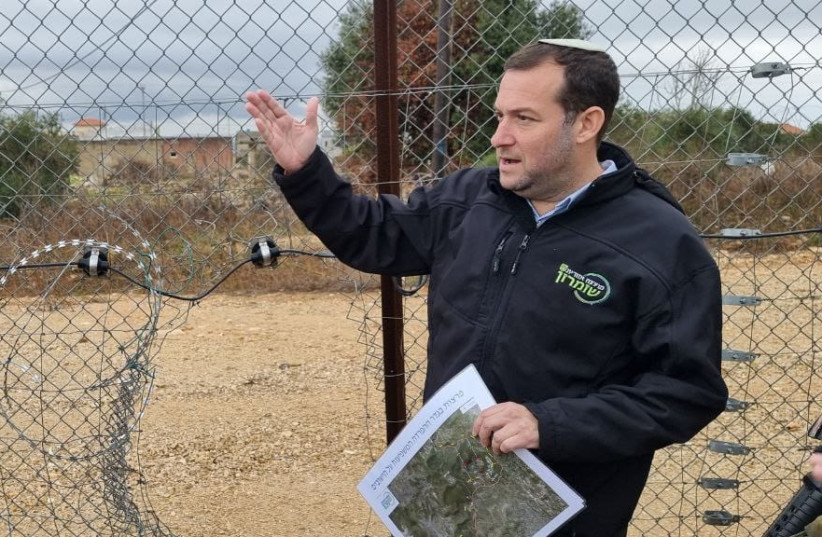Security forces have thwarted 15 terrorist attacks in the West Bank and sovereign Israel, Prime Minister Naftali Bennett said on Tuesday during a visit to IDF’s Judea and Samaria headquarters on the outskirts of El-Bireh.
He provided an overview of efforts to thwart additional violence in the aftermath of last month’s three terrorist attacks – one by a Palestinian gunman and two by Arab-Israeli gunmen – that claimed 11 lives.
Bennett also disavowed accusations of a settlement freeze and downplayed the significance of the security barrier in preventing terrorist attacks.
Last month’s violence was a “wake-up call,” Bennett said, as he pledged to make up for the “neglect and procrastination” of past governments with respect to this threat.
“Security forces have arrested 207 suspects and raided dozens of homes,” said Bennett, adding that they have also located 400 “suspects or people who have had some connection with ISIS or extremist jihad organizations.”

Bennett said that NIS 180 million in emergency assistance had been allocated to the police, including for the establishment of a new Border Police brigade.
More efforts must be made to combat crime within Arab-Israeli society, he said.
“There were also years of neglect, by many governments, of the issue of weapons in the Arab sector. Quietly, over the years, Israeli governments allowed approximately 250,000 weapons to be accumulated illegally in the Arab sector. There is no choice. We must now deal with this and clean it up in a massive and in-depth operation,” he said.
Bennett cautioned against overly relying on the security barrier to prevent terrorist attacks, stating, “Fences alone are not enough,” he said. The action of security forces on the ground is a necessary ingredient.
He also pushed back at accusations that the planning process for new West Bank settler homes had been frozen.
“We are continuing and will continue to build in Judea and Samaria. There will not be a freeze here. Things will happen in the right order.”
Defense Minister Benny Gantz on Tuesday night issued regulations for the month of Ramadan when it comes to Palestinian prayer at the Temple Mount, known to Muslims as al-Haram, al-Sharif.
Men ages 50 and over are allowed onto the site, as are women of all ages and boys up to the age of 12. Men ages 40 and over must have a permit to access the site.
With an eye to helping families enjoy the holiday, Gantz said that West Bank Palestinians can visit first-degree relatives in sovereign Israel from Sunday to Thursday.
